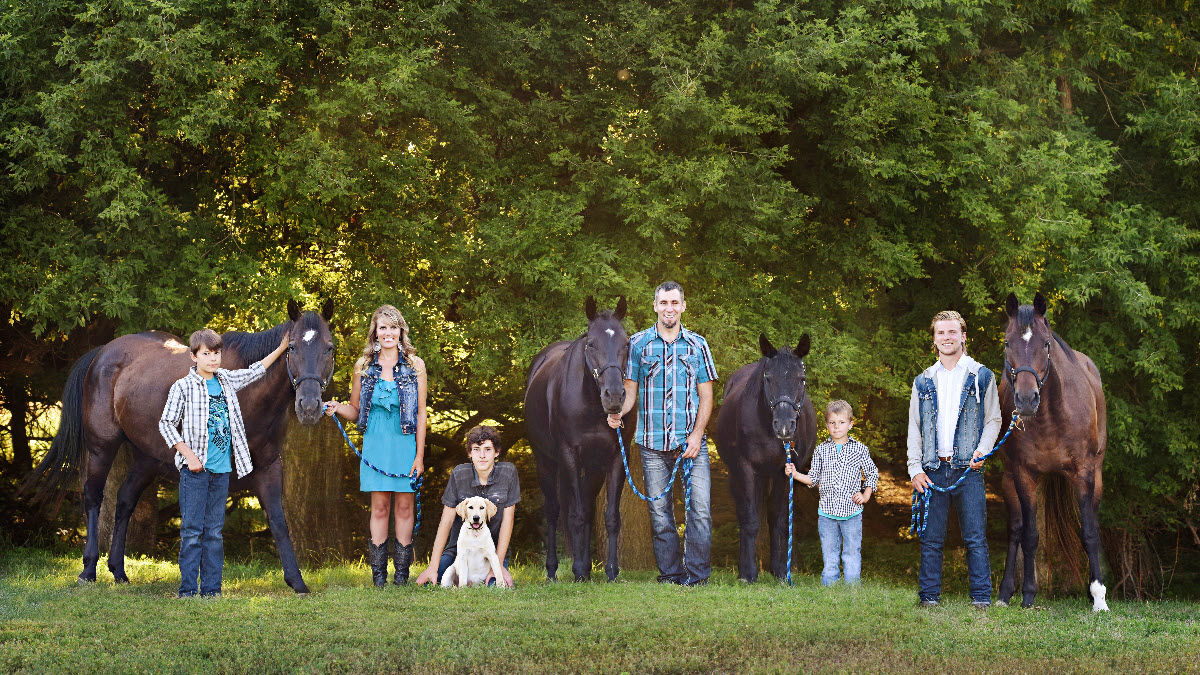Stories
Bringing mental health resources to a town in need

Jonathan Franklin, a U.S. Bank employee based in Harvey, North Dakota, and his wife, Nicole, opened the first and only counseling center within 60 miles of the rural town after a spate of suicides.
After a game of pickup basketball at the local gym in Harvey, North Dakota, Jonathan Franklin was chatting with a group of school-age students and came to the sobering realization that of the 10, half of the teens had a parent who died from suicide.
Jonathan, who was born and raised in Harvey before moving away to attend college, went to grade school with many of these parents. The realization that so many in Harvey, a rural town of fewer of 1,800, were struggling with mental-health issues was a galvanizing moment for both Jonathan and his wife, Nicole, a Harvey native and a licensed clinical social worker. At the time, there were no mental health services available within Harvey or the larger Wells County area, so they purchased and rehabilitated an abandoned building on the main street in town and opened Mosaic Wellness Center. It’s the first and only center to offer counseling services within 60 miles.
“Our goal is to bring as many mental health therapists here as we can, because the need is so great,” said Jonathan, who in addition to helping launch Mosaic is an assistant vice president on the data analytics team at U.S. Bank. He’s worked remotely from Harvey since joining the company.
Nationwide, the average ratio of people to mental health providers is 373 to one. In North Dakota, it’s a ratio of 510 to one. In Wells County, it’s 3,982 to one. From the moment the Franklins opened Mosaic Wellness Center, Nicole has had a wait list extending beyond six months.
To help meet that demand, Mosaic would like to offer more group programs to accommodate larger numbers of people. They’re also exploring ways to attract other mental health professions to the area, including offering internship programs for students working on their accreditations.
Their efforts were recently commended by North Dakota Gov. Doug Burgum during his February State of the State address. “We’re grateful to have such caring community members in our state,” he said. “And while the Franklins’ story is unique, the need for more mental health and addiction services across North Dakota is not.”
Adam Gallatin, who is Jonathan’s manager, knew of his involvement in providing mental health services to his community but didn’t realize the full extent of it until Jonathan asked for time off a few months ago to talk to a legislative panel about the need for more mental-health providers in rural areas.
Gallatin, who has known Jonathan since the early 2000s, said Jonathan has always been quick to help.
“Jonathan has always had a big heart, and he and his family are volunteering and helping the community all the time,” Gallatin said.
While Nicole and Jonathan have known each other since they were kids growing up in Harvey, they didn’t start dating until after college. Jonathan’s career took them from California to Kansas City. Each summer, however, they brought their kids home to Harvey to be closer to family and experience wide-open spaces.
They also knew that living in a rural area comes with its own challenges. Throughout her graduate schoolwork to become a licensed clinical social worker, Nicole always took a particular interest in researching mental health and the higher rate of suicide in the rural U.S. In 2013 and 2015, the suicide rate was 55% higher in rural areas (19.7 per 100,000 population) than in large urban areas (12.7 per 100,000 population), according to the Rural Policy Research Institute. Part of the reason includes lack of mental-health services and reduced access to timely emergency medical services in areas with smaller populations.
Nicole worked as a counselor at an alternative high school in Kansas City, where she saw a lot of trauma and drug abuse. She was nonetheless surprised at the level of distress in Harvey, where nearly 21 school-age children had attempted suicide within a 12-month span.
Since establishing counseling services in the town, one positive change is that people in the community are now much more attuned to the emotional well-being of their peers. Kids are much more likely to let a trusted adult know if a classmate expresses suicidal thoughts on social media than they did before, she shared.
“A lot of times it’s a cry for help,” Nicole said. “And we want to be able to provide the resources to be there to truly help.”
Providing those resources can require flexibility. Jonathan, who isn’t a licensed mental health professional, helps to run a weekly grief support group at Mosaic.
“I’m not a therapist – I just have a heart for this kind of work, and group therapy is an easier one for me to do because the group does the work, I just have to facilitate,” he said. “I don’t want to see Nicole burn out doing this on her own, because then the community has nothing and no one wins.”
To learn more about the work the Franklins are doing and to see videos of the renovations, check out their website, mosaicwellnesscenter.org.

Media center
Press contact information, latest news and more
Learn more
Company facts, history, leadership and more
Work for U.S. Bank
Explore job opportunities based on your skills and location
